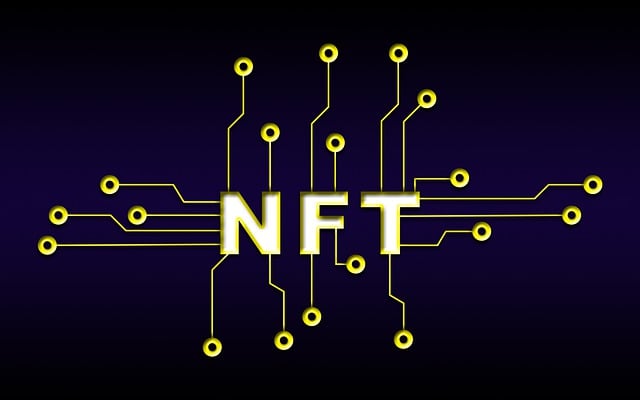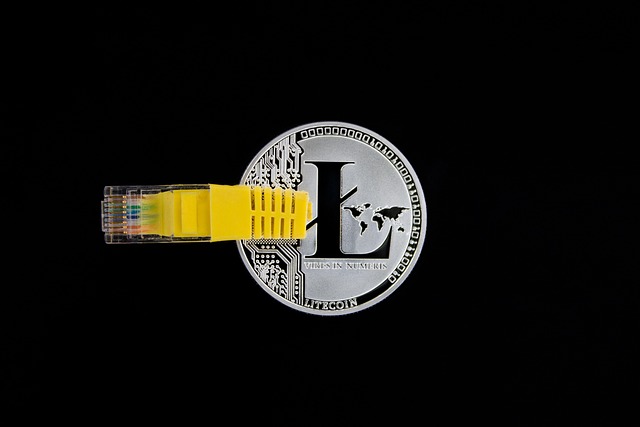In recent years, South Africa has witnessed a surge in crypto assets popularity, aligning with global trends. This shift towards decentralized finance offers new investment opportunities and payment methods, with Bitcoin, Ethereum, and stablecoins leading the way. The country's complex tax system, including income, capital gains, and VAT taxes, now incorporates crypto asset taxation as the South African Revenue Service (SARS) adapts to this evolving market. Crypto-related transactions on exchanges, mining, and services are subject to VAT, with registration potentially mandatory based on trading volume. As the regulatory environment continues to evolve, understanding these tax implications is vital for investors and businesses to ensure compliance in the rapidly expanding crypto assets landscape in South Africa.
“Crypto Assets Taxation in South Africa: VAT Implications Explained delves into the intricate world of digital currencies within the country’s tax framework. With crypto assets gaining traction, understanding their tax implications is vital for investors and businesses alike. This article navigates the South African tax system, focusing on VAT regulations specific to cryptocurrencies. We explore how crypto asset gains are taxed, providing insights into current practices and potential future changes. By unraveling these complexities, it offers a comprehensive guide for those navigating this evolving financial landscape.”
- Understanding Crypto Assets and Their Rise in South Africa
- The South African Tax System: A Brief Overview
- VAT (Value-Added Tax) and Its Application to Cryptocurrencies
- Taxation of Crypto Asset Gains in South Africa
- Future Outlook: Potential Changes and Considerations for Investors
Understanding Crypto Assets and Their Rise in South Africa

In recent years, crypto assets have experienced a remarkable surge in popularity and adoption within South Africa, mirroring global trends. This digital evolution has sparked interest among investors, entrepreneurs, and regulators alike, as virtual currencies like Bitcoin, Ethereum, and stablecoins gain traction. The rise of crypto assets represents a significant shift towards decentralized finance, offering new investment opportunities and innovative payment methods. As South Africa navigates the intricate landscape of crypto asset taxation, understanding this burgeoning market is crucial for both individuals and businesses to ensure compliance with VAT regulations.
The increasing presence of crypto assets in South Africa can be attributed to various factors. Firstly, the country’s favorable regulatory environment has encouraged investment and innovation. Secondly, the global shift towards digital currencies, coupled with the potential for higher returns, has captivated local investors. Moreover, the accessibility of online trading platforms and a growing community of crypto enthusiasts have contributed to the mainstream adoption of these digital assets. As South Africa continues to embrace this technological revolution, the tax implications, particularly VAT, will be a key area of focus for financial stakeholders and policymakers.
The South African Tax System: A Brief Overview

South Africa’s tax system is a complex landscape where various taxes intersect, including income tax, capital gains tax, and value-added tax (VAT). Crypto assets taxation in South Africa falls under this broader framework, with specific rules governing how digital currencies are treated. The country’s Revenue Service (SARS) plays a pivotal role in administering these taxes, ensuring compliance among citizens and businesses transacting in cryptocurrencies.
The VAT system in South Africa is particularly relevant to crypto assets, as it applies to the supply of goods and services. This includes any transactions involving cryptocurrency exchanges, where VAT registration may be required depending on the volume and nature of trading activities. Understanding these tax implications is crucial for investors and businesses navigating the growing crypto asset market in South Africa.
VAT (Value-Added Tax) and Its Application to Cryptocurrencies

In South Africa, the application of VAT (Value-Added Tax) to crypto assets is a complex area that has been evolving alongside the growing popularity of digital currencies. While traditional forms of currency have long been subject to VAT regulations, the nature of cryptocurrencies presents unique challenges due to their decentralized and borderless characteristics. As such, the South African Revenue Service (SARS) has had to adapt its approach to include these new assets within the existing tax framework.
VAT is typically levied on the supply of goods and services, and in the context of crypto assets, this can include transactions involving cryptocurrency exchanges, mining operations, and the provision of related services. The SARS has clarified that certain types of crypto activities are indeed taxable, which includes any event that generates a profit or creates a consideration (a good or service for which payment is made). This means individuals and businesses involved in buying, selling, trading, or mining cryptocurrencies may need to register for VAT and comply with the relevant reporting and collection requirements.
Taxation of Crypto Asset Gains in South Africa

In South Africa, the taxation of crypto asset gains is a complex area that has evolved over time. While the country’s approach to cryptocurrency remains somewhat nuanced, the South African Revenue Service (SARS) has taken steps to bring digital assets under traditional tax structures. Crypto-related income, including gains from the sale or exchange of cryptocurrencies, is generally considered taxable and subject to capital gains tax (CGT). Individuals who hold crypto assets for less than 30 months are typically taxed at a shorter-term capital gain rate, while longer-term holdings are taxed at the standard CGT rate.
The Value-Added Tax (VAT) implications for crypto assets are also significant. In June 2021, South Africa introduced VAT on virtual or digital goods and services, including cryptocurrency transactions. This means that when a crypto asset is sold or traded, the transaction may be subject to VAT, with the seller responsible for collecting and remitting the tax. The SARS has provided certain clarifications and exemptions for small-scale crypto traders, but larger operations and exchanges must carefully navigate these new regulations to ensure compliance with South Africa’s Crypto Assets Taxation framework.
Future Outlook: Potential Changes and Considerations for Investors

As the regulatory landscape evolves, investors in crypto assets in South Africa can expect further clarifications and potential changes to VAT implications. The future outlook for crypto taxation is likely to be shaped by global trends and technological advancements, with regulators worldwide grappling with how to best tax these novel assets.
South African authorities may introduce more specific guidelines on the treatment of different types of crypto transactions, including mining activities, initial coin offerings (ICOs), and staking rewards. Investors should remain vigilant, stay informed about any policy shifts, and consult professionals to ensure compliance as the crypto asset space continues to grow and mature within the country’s legal framework.















